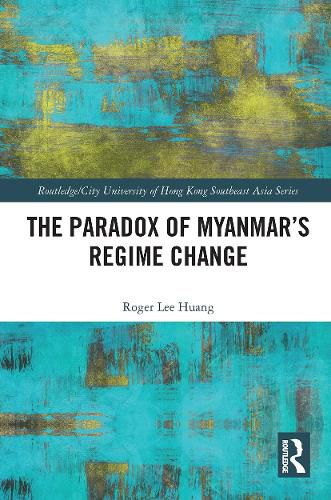Readings Newsletter
Become a Readings Member to make your shopping experience even easier.
Sign in or sign up for free!
You’re not far away from qualifying for FREE standard shipping within Australia
You’ve qualified for FREE standard shipping within Australia
The cart is loading…






This book analyzes Myanmar’s contemporary political history, arguing that Myanmar’s so-called democratization has always been a calculated regime transition, planned by the military, with every intention that the military to remain the key permanent political actor in Myanmar’s political regime.
Using the period since Myanmar’s regime change in 2011 as an extended case study, this book offers an original theory of regime transition. The author argues that Myanmar’s ongoing regime transition has not diverged from its authoritarian military roots and explains how the military has long planned its voluntary partial withdrawal from direct politics. Therefore, Myanmar’s disciplined democracy contains features of democratic politics, but at its core remains authoritarian. Providing an original contribution to the theoretical literature on regime change by developing a theory of trial and error regime transition, the book engages with and challenges the popular democratization theory by arguing that this theory does not sufficiently explain hybrid regimes or authoritarian durability. Additionally, the book adds to an alternative understanding of how the regime transition was initiated by examining the historical evolution of Myanmar’s post-colonial regime and offers a fresh perspective on contemporary political developments in Myanmar.
An important contribution to the study of authoritarian durability and the dynamics of regime change in Southeast Asia, this book will be of interest to academic researchers of comparative politics, international relations, and Southeast Asian studies.
$9.00 standard shipping within Australia
FREE standard shipping within Australia for orders over $100.00
Express & International shipping calculated at checkout
This book analyzes Myanmar’s contemporary political history, arguing that Myanmar’s so-called democratization has always been a calculated regime transition, planned by the military, with every intention that the military to remain the key permanent political actor in Myanmar’s political regime.
Using the period since Myanmar’s regime change in 2011 as an extended case study, this book offers an original theory of regime transition. The author argues that Myanmar’s ongoing regime transition has not diverged from its authoritarian military roots and explains how the military has long planned its voluntary partial withdrawal from direct politics. Therefore, Myanmar’s disciplined democracy contains features of democratic politics, but at its core remains authoritarian. Providing an original contribution to the theoretical literature on regime change by developing a theory of trial and error regime transition, the book engages with and challenges the popular democratization theory by arguing that this theory does not sufficiently explain hybrid regimes or authoritarian durability. Additionally, the book adds to an alternative understanding of how the regime transition was initiated by examining the historical evolution of Myanmar’s post-colonial regime and offers a fresh perspective on contemporary political developments in Myanmar.
An important contribution to the study of authoritarian durability and the dynamics of regime change in Southeast Asia, this book will be of interest to academic researchers of comparative politics, international relations, and Southeast Asian studies.